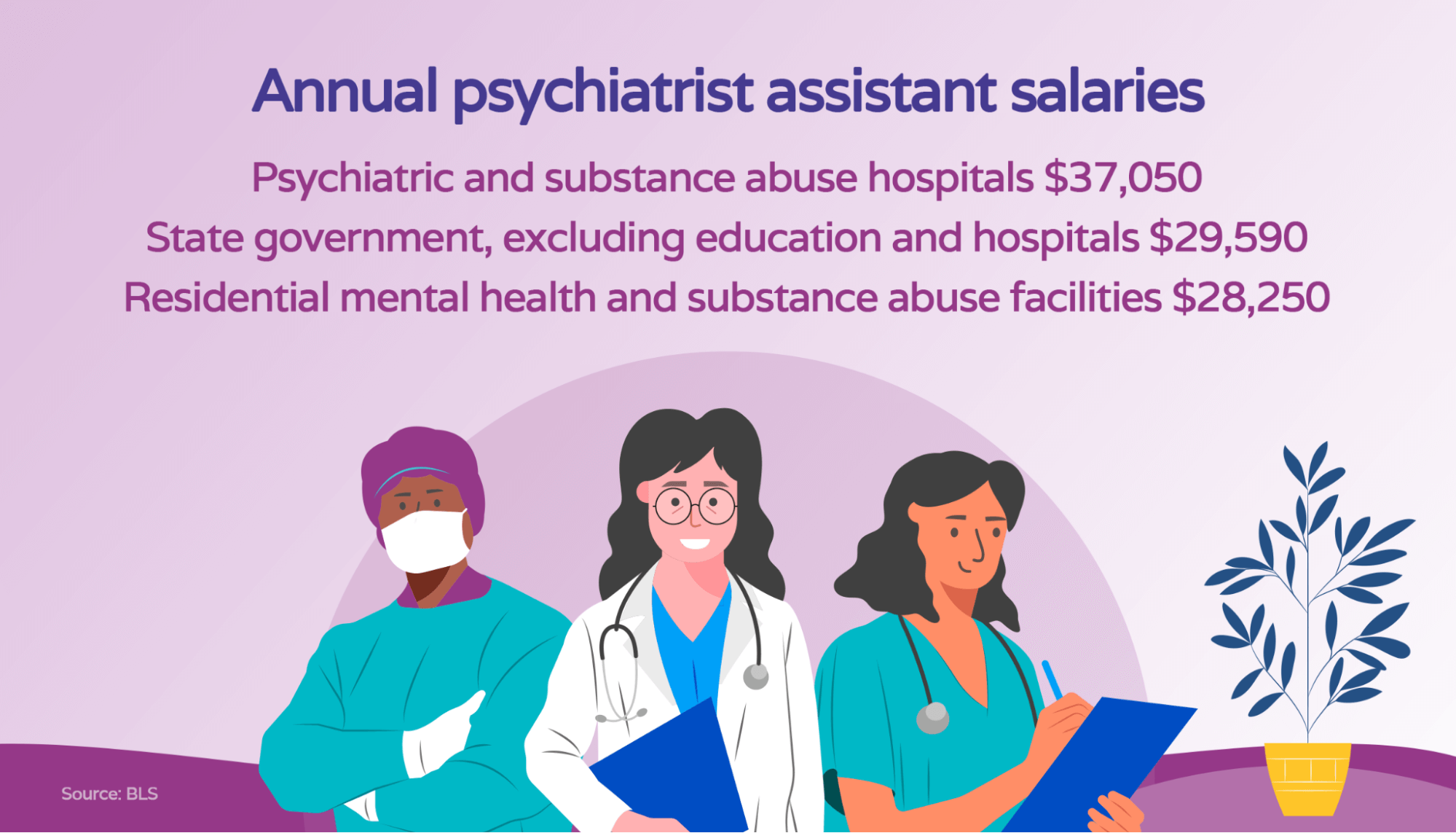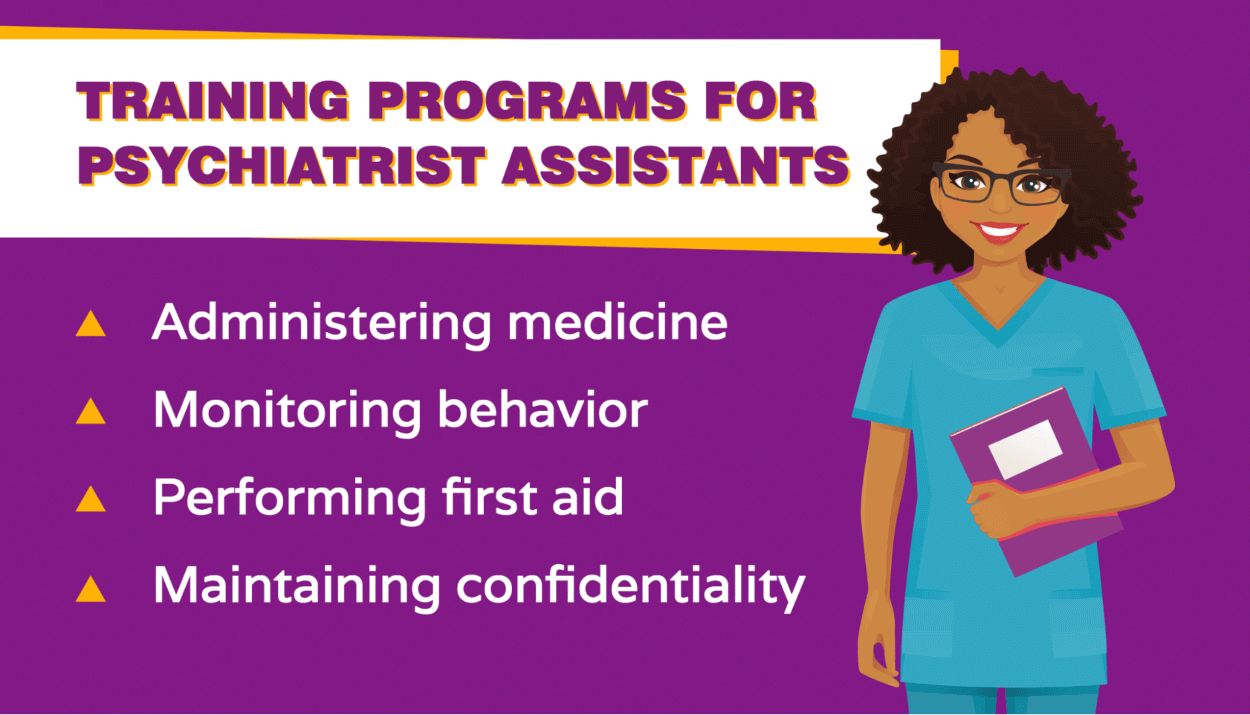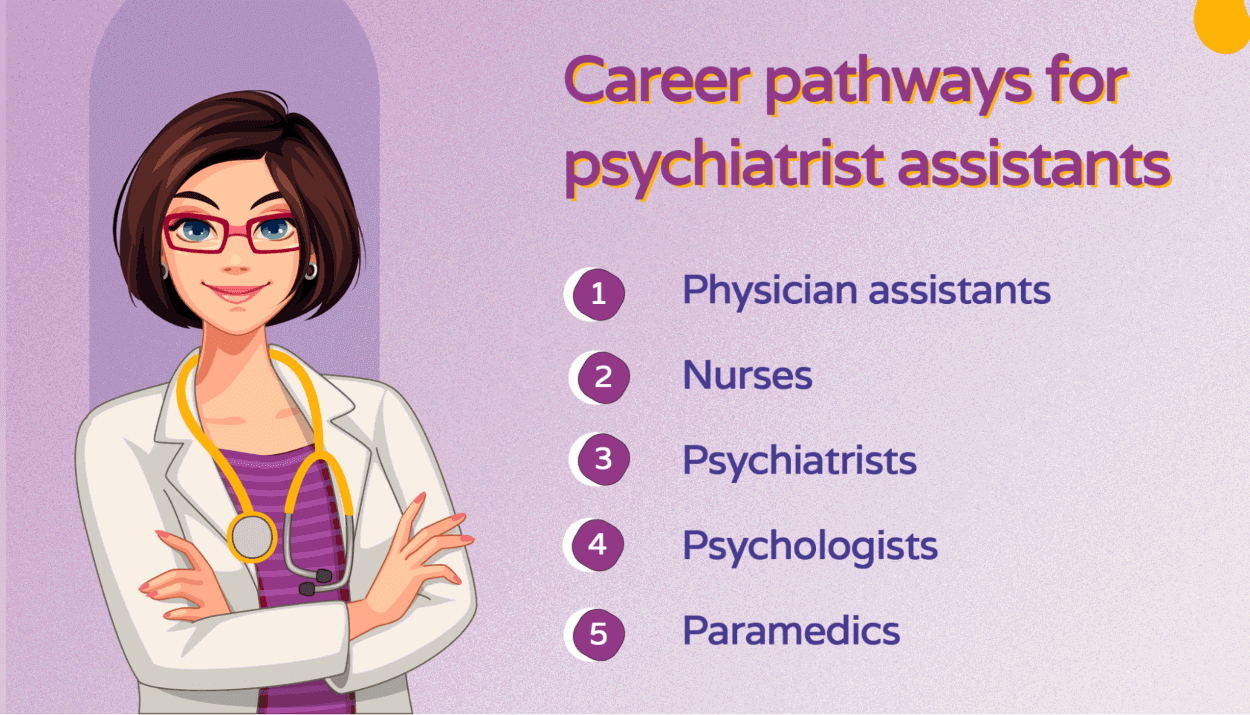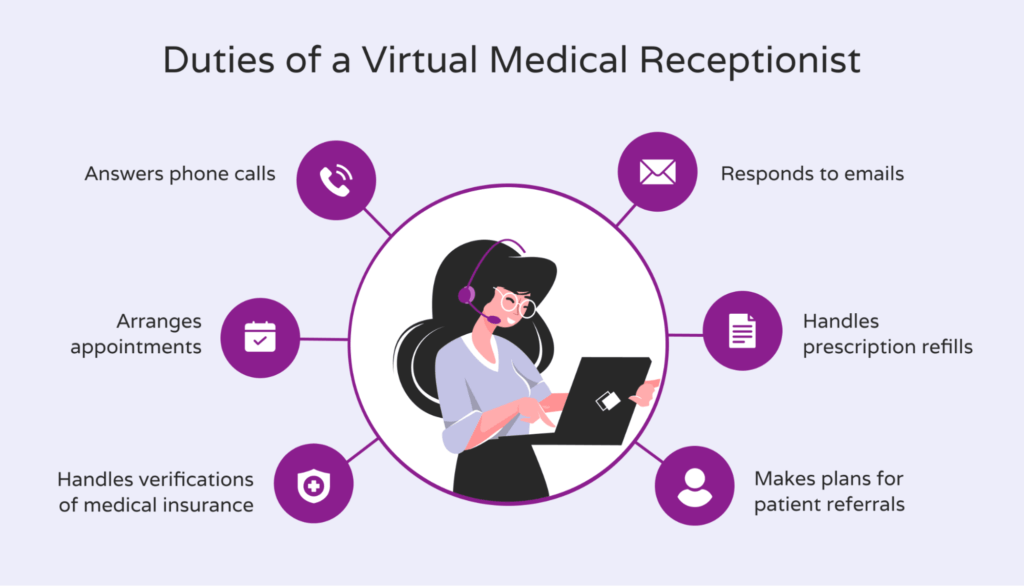Psychiatrist assistants work with patients who have mental health disorders. They support psychiatrists and help people with their day-to-day activities.
These health care workers are in demand. Every year, there are around 15,200 new job openings for psychiatrist assistants.
They work in a range of settings, including psychiatric hospitals and residential mental health facilities.
If you're considering hiring a psychiatrist assistant, you may be wondering whether you have space in your budget. To help you decide, we've put together this psychiatrist assistant salary guide.
We'll tell you about the typical salary and how it can vary between states. Plus, we'll explain why a Healthcare Virtual Assistant (HVA) could be an affordable alternative.
What is a psychiatrist assistant?
Psychiatrist assistants are part of the mental healthcare team. They work closely with psychiatrists and other healthcare professionals to care for patients.
Job duties include observing patients and flagging any changes in behavior. They follow any recommendations from the psychiatrist, and some assistants can administer medication.
They give patients general care, including support with dressing, bathing, and brushing teeth. Psychiatrist assistants may tidy rooms, take out the garbage, wipe surfaces, and change the bedding.
Some patients benefit from extracurricular activities like art, fitness, or volunteering. They may also need to attend appointments. Psychiatrist assistants transport and supervise patients while they're out and about.
These workers are responsible for general administrative duties, including making phone calls, taking notes, and updating records.
Want more insights into the daily duties of a psychiatrist assistant? Check out our full guide.
If you only need assistance with office tasks, consider an HVA instead. The virtual assistants from Hello Rache are fully trained and come with medical knowledge. Our team can support your psychiatric practice and reduce your workload.
Learn more about how an HVA from Hello Rache can help you.
How much does a psychiatrist assistant make?
The question is, how much should you pay a psychiatrist assistant? The rate can vary depending on job requirements, skill level, and the type of employment.
The national average salary for a psychiatrist assistant is $36,230 per year or $17.42 per hour.

The job setting can have an impact on the average base salary. Those working in a psychiatric and substance abuse hospital environment make an average wage of $37,050 per year.
Psychiatrists who work for the state government in a non-hospital setting make around $29,590 a year.
There's a slight drop in salary for people working in residential mental illness and substance abuse facilities. They make an average of $28,250 a year.
For hardworking team members, there are opportunities for advancement, annual incentives, and cash compensation. You'll also need to consider benefits and overtime pay.
Did you know a Healthcare Virtual Assistant can save you money? For a flat rate of $9.50 an hour, you can get administrative support for your medical facility.
How does the psychiatrist assistant salary vary between states?
The annual salary range can vary depending on your location. The highest paying state is Connecticut, where psychiatrist assistants make an average of $47,000 per year.
New York is another state with an above-average salary. Workers here make around $45,700 per year.
In Florida, the average annual wage is $28,860, and in Tennessee, it's $27,910.
The average pay in Texas is $26,890. If you're in West Virginia, psychiatrist assistants make $25,740 a year.
Mississippi has one of the lowest salaries. Workers here make an average of $23,060 per year.
What should you look for in a psychiatrist assistant?
If you offer mental health services, you may be looking for a psychiatrist assistant.
Before you write your job posting, think about the types of skills that'd benefit your practice.
Here are a few things to put on your candidate wish list.
1. Patience
Psychiatrist assistants need to be patient and compassionate. They'll work with a diverse range of patients with different diagnoses.
They should be cool and calm under pressure and treat patients with respect.

Some tasks can be repetitive, and patients may not always cooperate. For example, helping someone to dress can take time, especially if they're having a bad day.
Your patients deserve the best care, so look for someone with a positive attitude.
You can give your team the right skills with educational training programs.
2. Communication skills
Psychiatrist assistants work with medical staff and patients, so good communication skills are essential.
Sometimes there'll be difficult patients, and they'll need to defuse situations calmly. There may be language barriers, and patients may have developmental disabilities.
Good communication covers a range of areas. For example, they should have active listening skills and excellent verbal and written communication skills.
3. Physical fitness
The role can include heavy lifting and maneuvering equipment such as wheelchairs and walking frames. These healthcare workers may also have to help patients with bathing and dressing.
Psychiatrist assistants need to be physically fit and able to stand on their feet for long hours.
Manual dexterity is also essential. They may be responsible for administering medication, driving, and brushing teeth. These types of tasks require good coordination.
4. Driver’s license
Psychiatrist assistants may transport patients to appointments and activities. If driving is part of the job requirement, make sure they have a valid driver's license.
Depending on the location and vehicle size, a commercial driver's license may be required.
You can do a background check to make sure they have a safe driving record. A confident driver with good attention to detail and experience transporting patients will give you peace of mind.
5. Mental health training
Someone with mental health training will be able to support your patients from day one.
There is a range of skills they'll learn when they study. For example, your new team member should know how to monitor behavior and maintain patient confidentiality.

You may want them to have medical knowledge and be trained to administer medication. First aid and life support training should be essential.
Clinical experience will be an advantage.
6. Observational skills
Your psychiatrist assistant will spend time monitoring patients. They'll check their condition and look for any changes in behavior.
There'll be a patient assessment for them to refer to, and they'll keep an eye on their charts. If there are any reactions to medications, this information will need to be recorded.
To be successful in this role, the assistant will need excellent observational skills.
7. Attention to detail
When you provide mental health services, you'll work with vulnerable people.
Any mistakes can be detrimental to the patient's health. For example, giving someone the wrong dose of medication can lead to negative health outcomes.
When you choose a team member who's detail-oriented, they'll be less likely to make mistakes. From updating patient files to sharing information between healthcare professionals, attention to detail should be a priority.
8. Computer skills
Finally, there are computer skills. The psychiatrist assistant will be responsible for basic administrative duties and should be tech savvy.
They'll need fast, accurate typing skills and should be confident using common software such as Google Workspace and Microsoft Office. Plus, they should be able to navigate dedicated health programs, including EHRs (electronic health records).
Remember, the HVAs from Hello Rache can perform a range of administrative duties. Our team members have strong computer skills and are available when you need them.
What career paths are available for psychiatrist assistants?
With additional training, psychiatrist assistants can transition to different healthcare careers.
They may choose to continue in the mental health field and study to become a psychiatric nurse, psychiatrist, or psychologist.

Some psychiatrist assistants work as physician assistants, while others turn to careers as nurses or paramedics.
There is a range of job opportunities available for those with healthcare experience. Some employers even offer training for promotions.
How can a Healthcare Virtual Assistant help?
It doesn't matter if you run a busy psychiatric hospital or a private residential facility. A Healthcare Virtual Assistant can help you streamline your processes and reduce your workload.
Any administrative task can be taken care of virtually. The list includes data entry, transcribing documents, and answering phones. HVAs can do basic bookkeeping, manage social media, and update patient records.
The Hello Rache team can be there when you need them, and our HVAs have medical knowledge. We even have virtual medical scribes who can transcribe during your consultations.
You can get help at a fraction of the cost of a new employee, and because they're remote, you won't need to worry about providing a desk or equipment.
There are no lock-in contracts, and you can cancel at any time.
Psychiatrist assistant salary: Key points
Psychiatrist assistants support patients with mental health conditions.
They work in a team and perform a range of duties. For example, they administer medication, transport patients, and observe behavior.
The salary for a psychiatrist assistant can vary depending on a range of factors. In this article, we told you about the average annual salary and showed you how different states look side by side.
If you want to hire a psychiatrist assistant, there are a few things to look for. Patience, communication, physical fitness, observational skills, and attention to detail are all good qualities.
A valid driver’s license, mental health training, and computer skills are also important.
Need administrative support? Contact us today to learn more about our virtual health care solutions.



